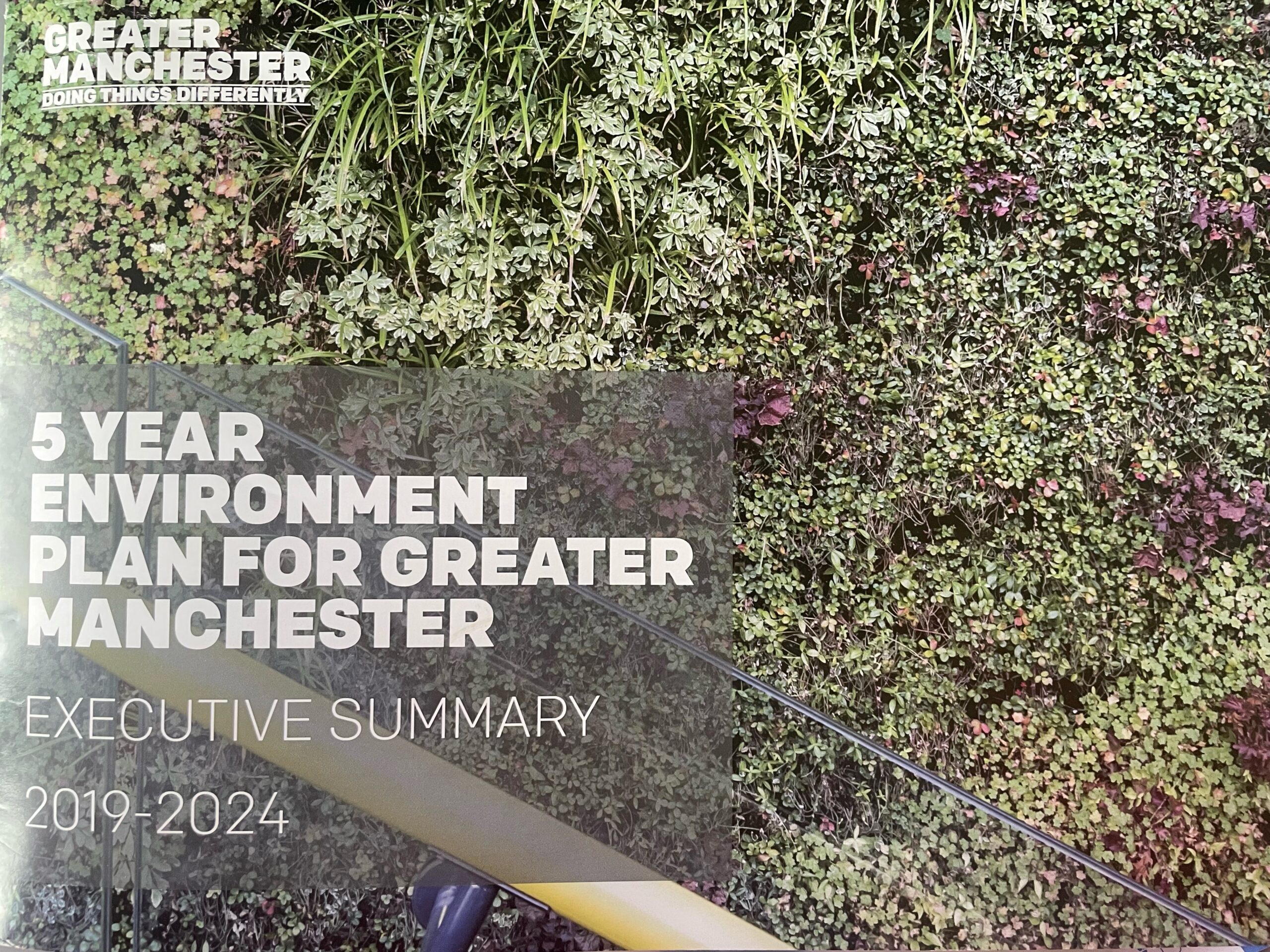The challenges we are facing
In Greater Manchester we face several major environmental challenges that threaten the future health and prosperity of our city region:
- Challenge 1: Mitigating Climate Change – We generate significant CO2 emissions, which equate to about 3.6% of total UK annual CO2 emissions and contribute to global climate change.
- Challenge 2: Air Quality – Local air pollution causes significant harm to our health and environment and, as a result, has an adverse impact on us and our economy.
- Challenge 3: Production and Consumption of Resources – The products and goods we consume and the waste produced after their use has a significant impact on our local environment and on CO2 emissions produced inside and outside of the city region..
- Challenge 4: Our Natural Environment – More action and investment is needed to protect, maintain and enhance our natural environment, so that we see a “net gain” rather than a “net loss” in the services it provides.
- Challenge 5: Resilience and Adaptation – We need to increase our city’s resilience and adapt to the impacts that unavoidable climate change will increasingly have on us.
Reducing our emissions
Climate change is the single biggest threat the world faces.
Mitigating climate change is the most significant of our environmental challenges. We need to make our fair contribution to global commitments aimed at limiting global temperature rise. Research carried out by the Tyndall Centre for Climate Research concluded that urgent action was needed to put Greater Manchester on a path to ‘carbon neutrality’ by 2038, initiating an immediate programme of mitigation delivering an annual average of 15% cuts in emissions.
What we are doing
The Greater Manchester 5-Year Environment Plan
To make a fair and equitable contribution to meeting UK and global targets we need to take radical local action, alongside national-level action, to accelerate change. The 5-Year Environment Plan launched in March 2019 sets out our long-term environmental vision to be carbon neutral by 2038 and the urgent actions we all need to take in five key priority areas – Energy Supply, Transport and Travel, Homes and Buildings, Production and Consumption, and Our Natural Environment.
Find out more



